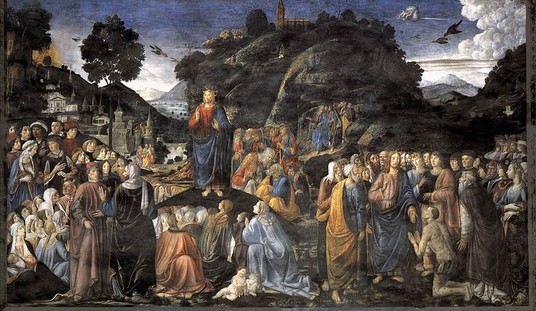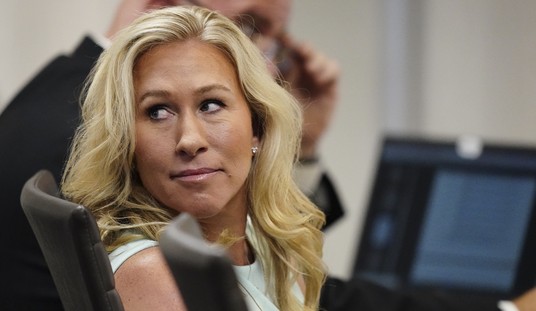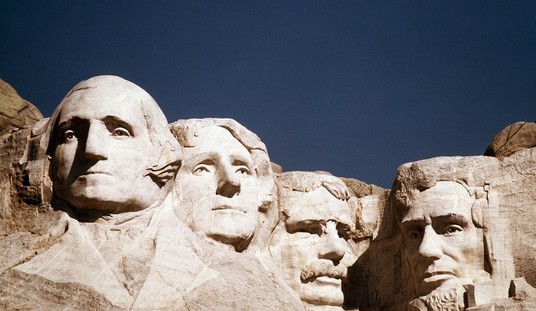Texas Gov. Rick Perry has been planning this event since December of last year, but as the weekend of his much-vaunted day of prayer and fasting (“The Response“) nears, the, well, response hasn’t been quite what the governor had in mind. Even as Perry’s personal popularity as a potential GOP presidential candidate grows, R.S.V.P.’s to the Christians-only event remain embarrassingly low. That would, perhaps, be no political problem at all if a majority of Perry’s fellow legislators, opinion shapers and likely voters vocally planned to be with him in spirit — but the event has generated far more debate than it has overt praise. Those who support it seem to do so in a non-committal kind of way, while those who oppose it do so vehemently. One group even sued the governor, calling the event unconstitutional — but a federal judge last week dismissed the suit.
Three things to keep in mind:
(1) Some media coverage has painted the event as some kind of campaign launch, but it seems safe to say Perry didn’t plan this with the 2012 presidential election in mind. When Perry first conceived of the prayer rally, he was far, far from a declaration. In fact, he was insisting he had no interest in running for president and implying even he thought he was too conservative to be elected. No, Perry planned “The Response” for the reasons he says he did — because he believes the nation is at a crossroads, that the country faces challenges the likes of which it has never faced before and because he believes prayer might be of help.
(2) Even though Perry extended an invitation to his fellow governors across the country, the event is not technically a “state” event. No taxpayer dollars have worked their way into its planning. Attendance is 100 percent voluntary. Perry wants it to be “national” in the sense that he wants the nation to come together to recall the God he himself believes in — but he’s not using any state apparatus to ensure that happens.
(3) Such an event is not without precedent. One of my favorite responses on a Politico thread to debate the issue came from former Congressman Bob Beauprez (R-Colo.):
Something “inappropriate” about a call to faith by a politician – even a president? For guidance let’s see what our first three presidents had to say:
George Washington: “While we are zealously performing the duties of good citizens and soldiers, we certainly ought not to be inattentive to the higher duties of religion. To the distinguished character of Patriot, it should be our highest glory to add the more distinguished character of Christian.”
John Adams: “The second day of July, 1776, will be the most memorable epoch in the history of America. I am apt to believe that it will be celebrated by succeeding generations as the great anniversary Festival. It ought to be commemorated, as the Day of Deliverance, by solemn acts of devotion to God Almighty.”
Thomas Jefferson: “God who gave us life gave us liberty. And can the liberties of a nation be thought secure when we have removed their only firm basis, a conviction in the minds of the people that these liberties are of the Gift of God? That they are not to be violated but with His wrath? Indeed, I tremble for my country when I reflect that God is just; that His justice cannot sleep forever; That a revolution of the wheel of fortune, a change of situation, is among possible events; that it may become probable by Supernatural influence! The Almighty has no attribute which can take side with us in that event.”
Indeed, the only thing “inappropriate” in today’s America is that too often we have forgotten, even ignored, our heritage and the example of our Fathers.
In addition, as has been much pointed out, presidents from Lyndon B. Johnson to Barack Obama have participated in the National Prayer Breakfast in D.C.
In light of these facts, it’s difficult to understand what the controversy is. Certainly, it’s questionable whether it’s a wise political move. It’s generally conceded that this might shore up support among evangelical voters, who could be influential for Perry in Iowa as they were for former Arkansas Gov. Mike Huckabee in 2008 and it’s equally conceded that, if the electorate remembers this by November 2012, it could hurt Perry in the general.
But I’d prefer to look more at what it says about Perry the person than Perry the politician that he planned this event in the first place and will carry it out in the face of public scrutiny. It says something extremely positive about his fortitude and internal character that he’s persisting in the prayer breakfast he’s made a signature initiative even though it’s struggling to attract attendees. His commitment to what keeps him grounded should serve as a reassurance that he’d stay on solid ground as a candidate or as the top executive in the country. And again, he didn’t plan the prayer event as a campaign or state function. He planned it as a call to cultural renewal, a semi-private, semi-public affair. Frankly, I’d like to see more politicians take his tack — that is, blend a limited approach to government with a sincere approach to the voluntary sharing of faith.







Join the conversation as a VIP Member